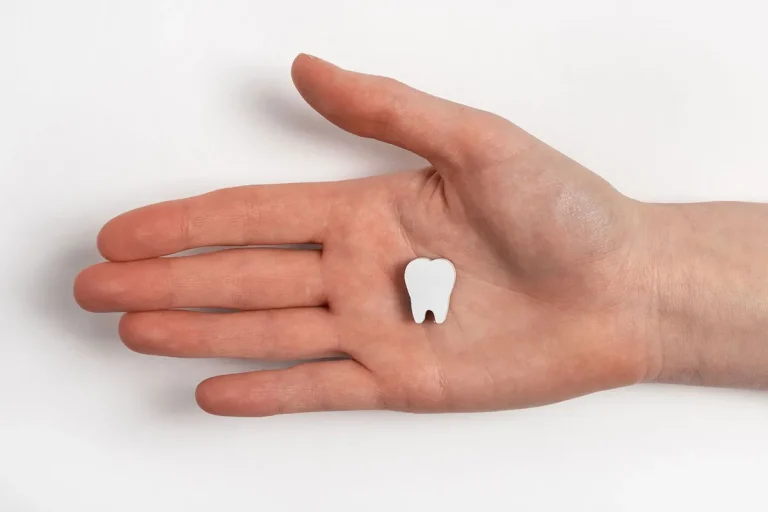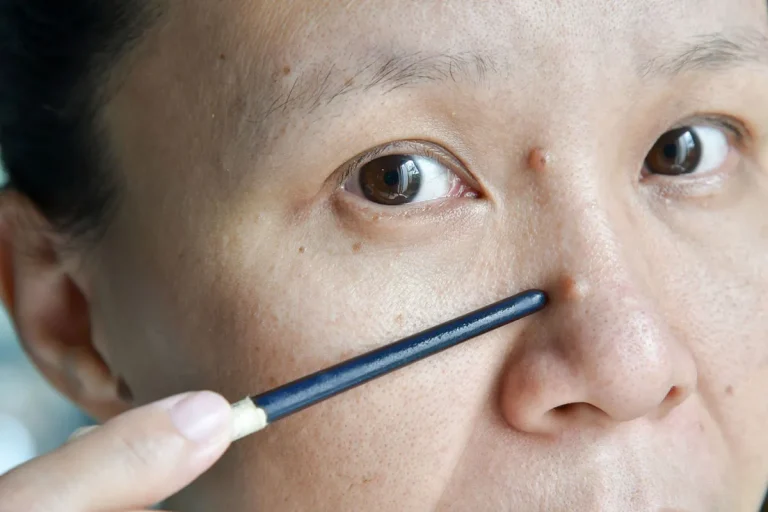Lip twitching is an involuntary muscle contraction that affects the lips, usually only lasting a few seconds. If you’ve ever experienced an odd sensation like this, you probably wondered what it could mean.
If you’re short on time, here’s a quick answer to your question: Lip twitching is usually harmless and nothing to worry about, though it can sometimes be a sign of stress, caffeine overuse, or a magnesium deficiency.
In this comprehensive guide, we’ll explore all the possible causes of lip twitching, from the benign to the more serious. We’ll also provide tips for preventing twitches and discuss when you should see a doctor about persistent twitching.
What Causes Lip Twitching?
Lip twitching, also known as lip fasciculation, is a common phenomenon that can occur for various reasons. While it is usually harmless and temporary, understanding the underlying causes can help alleviate any concerns. Here are some possible factors that can contribute to lip twitching:
Minerals like magnesium
Minerals play a crucial role in the proper functioning of our muscles, including those in our lips. A deficiency in minerals like magnesium can lead to muscle spasms and twitches, including lip twitching. Ensuring an adequate intake of magnesium-rich foods such as spinach, almonds, and dark chocolate can help prevent these twitches.
Stress and anxiety
Stress and anxiety can wreak havoc on our bodies, including causing muscle contractions and twitches. When we are under stress, our body’s stress response system goes into overdrive, leading to muscle tension and spasms. Learning stress management techniques, such as deep breathing exercises or meditation, can help reduce lip twitching caused by stress and anxiety.
Excess caffeine
Love your morning cup of coffee a little too much? Well, excessive caffeine consumption can be a culprit behind lip twitching. Caffeine stimulates the nervous system, which can cause muscle twitches and spasms. If you notice lip twitching after consuming a lot of caffeinated beverages, it may be a good idea to cut back on your caffeine intake.
Fatigue
When we are tired or fatigued, our muscles can become overworked and prone to twitches. Lip twitching may occur as a result of this muscle fatigue. Getting enough rest and sleep is essential for allowing our muscles to recover and preventing lip twitching caused by fatigue.
Alcohol withdrawal
If you’ve recently quit drinking alcohol or are going through alcohol withdrawal, lip twitching can be a symptom. Alcohol affects the central nervous system, and sudden withdrawal can lead to muscle spasms, including those in the lips. If you’re experiencing lip twitching along with other symptoms of alcohol withdrawal, it’s essential to seek medical guidance and support.
Remember, while lip twitching can be bothersome, it is often temporary and harmless. However, if your lip twitching persists or is accompanied by other concerning symptoms, it’s always a good idea to consult a healthcare professional for a proper evaluation.
When to See a Doctor About Lip Twitching
Lip twitching is a common occurrence and is usually harmless. In most cases, it goes away on its own without any intervention. However, there are certain situations where it is important to seek medical attention. If you experience any of the following, it is recommended to see a doctor:
If it lasts more than a few days
Typically, lip twitching lasts for a few minutes or hours and then subsides. However, if the twitching persists for more than a few days, it may be a sign of an underlying issue. It could be a result of a nerve disorder, such as hemifacial spasm, or a neurological condition like multiple sclerosis. Consulting a doctor will help determine the cause and appropriate treatment.
If it occurs with muscle weakness
If you notice that your lip twitching is accompanied by muscle weakness, it is important to seek medical attention. This combination of symptoms may be indicative of a condition called Bell’s palsy. Bell’s palsy is a temporary paralysis or weakness of the muscles on one side of the face, which can affect the lip muscles as well. A doctor can provide a proper diagnosis and recommend appropriate treatment options.
If it happens with other symptoms
Lip twitching can sometimes occur alongside other symptoms, which may be a cause for concern. For example, if you experience difficulty speaking, swallowing, or have facial drooping along with lip twitching, it could be a sign of a stroke. Strokes require immediate medical attention, so it is crucial to seek help right away. Remember, early intervention can greatly improve outcomes.
It’s worth noting that the information provided here is for educational purposes only and is not a substitute for professional medical advice. If you have any concerns or questions about your lip twitching, it is best to consult with a healthcare professional.
Preventing Lip Twitches
If you frequently experience lip twitching, there are several steps you can take to help prevent and minimize these involuntary muscle contractions. By following these tips, you can potentially reduce the frequency and intensity of lip twitches.
Manage stress
Stress is a common trigger for muscle twitches, including those in the lips. Finding healthy ways to manage stress can greatly reduce the occurrence of lip twitching. Consider incorporating relaxation techniques into your daily routine, such as deep breathing exercises, meditation, or yoga. Engaging in activities that you enjoy, such as hobbies or spending time with loved ones, can also help alleviate stress levels.
Get enough sleep
Getting sufficient sleep is essential for overall health and well-being, including the prevention of muscle twitches. Aim for at least 7-8 hours of quality sleep each night. Establishing a regular sleep schedule and creating a relaxing bedtime routine can improve the quality of your sleep. Avoiding caffeine and electronic devices before bed can also promote better sleep hygiene.
Eat magnesium-rich foods
Magnesium is an essential mineral that plays a role in muscle function and relaxation. Consuming foods rich in magnesium can help prevent muscle twitches, including lip twitching. Some magnesium-rich foods include dark leafy greens, nuts and seeds, fish, avocados, and bananas. Incorporating these foods into your diet can help ensure you are getting an adequate amount of magnesium.
Remember, it’s always a good idea to consult with a healthcare professional if you have persistent or severe lip twitches. They can provide further guidance and evaluate any underlying conditions that may be contributing to the twitching.
Lip Twitching vs. Other Conditions
Tremors
Lip twitching can sometimes be mistaken for muscle tremors. Tremors are involuntary, rhythmic movements of a body part, typically caused by muscle contractions. Unlike lip twitching, tremors are usually more pronounced and affect larger muscle groups. Common causes of tremors include neurological disorders, such as Parkinson’s disease, essential tremor, or multiple sclerosis. It is important to differentiate between lip twitching and tremors, as the underlying causes and treatment options differ.
Tics
Lip twitching can also be confused with tics. Tics are sudden, repetitive, and involuntary movements or sounds. They can affect various parts of the body, including the lips. Tics are commonly associated with conditions like Tourette syndrome or tic disorder. However, unlike lip twitching, tics often involve more complex movements, such as blinking, facial grimacing, or vocalizations. It is important to consult a healthcare professional to accurately diagnose whether the lip movement is a tic or a simple twitch.
Myokymia
Lip twitching can be classified as a type of myokymia, which refers to involuntary muscle contractions or quivering. Myokymia is usually harmless and temporary, and it can affect various muscles in the body. When it occurs in the lips, it is commonly referred to as lip myokymia. Stress, fatigue, caffeine consumption, or eye strain are common triggers for lip myokymia. Unlike tremors or tics, myokymia is typically brief and does not require any specific treatment. However, if lip twitching persists or is accompanied by other concerning symptoms, it is advisable to seek medical attention.
For more information on lip twitching and related conditions, you can visit reputable websites such as Mayo Clinic or WebMD.
When Lip Twitching May Indicate a Serious Condition
Lip twitching, also known as lip fasciculation, is a relatively common phenomenon that most people experience at some point in their lives. In most cases, lip twitching is benign and not a cause for concern. However, there are instances where lip twitching can be a sign of an underlying serious condition. It is important to be aware of these conditions and seek medical attention if necessary.
ALS (Amyotrophic Lateral Sclerosis)
ALS, also known as Lou Gehrig’s disease, is a progressive neurodegenerative disease that affects the nerve cells responsible for controlling voluntary muscles. Lip twitching can be an early symptom of ALS, along with muscle weakness, difficulty speaking or swallowing, and muscle cramps. If you experience persistent lip twitching accompanied by other symptoms, it is crucial to consult a healthcare professional for further evaluation.
Multiple Sclerosis
Multiple sclerosis (MS) is a chronic autoimmune disease that affects the central nervous system, including the brain and spinal cord. Lip twitching can occur as a result of the disrupted nerve signals caused by MS. Other symptoms of MS may include fatigue, numbness or tingling in the limbs, muscle weakness, and problems with coordination or balance. If you suspect MS as the cause of your lip twitching, it is advisable to seek medical advice.
Parkinson’s Disease
Parkinson’s disease is a neurodegenerative disorder that primarily affects the motor system. Lip twitching can be an early sign of Parkinson’s disease, along with other movement-related symptoms such as tremors, stiffness, and difficulty with balance and coordination. If you notice persistent lip twitching accompanied by other Parkinson’s disease symptoms, it is important to consult a healthcare professional for a proper diagnosis.
Bell’s Palsy
Bell’s palsy is a condition characterized by sudden, temporary weakness or paralysis of the muscles on one side of the face. Lip twitching can be a symptom of Bell’s palsy, along with facial drooping, difficulty closing one eye, and changes in taste or tear production. If you experience these symptoms, it is recommended to seek medical attention to determine the underlying cause and receive appropriate treatment.
Remember, while lip twitching can be a normal occurrence, it is essential to pay attention to any accompanying symptoms that may indicate a more serious condition. Consulting a healthcare professional is always recommended to ensure proper diagnosis and appropriate treatment.
Conclusion
In most cases, lip twitching is completely harmless and requires no treatment. Simple lifestyle measures like reducing stress and caffeine intake can help diminish twitches.
But if your lip twitching persists or occurs with other symptoms, consult your doctor to check for underlying conditions. With an accurate diagnosis, even serious causes like neurological disorders can be managed.






